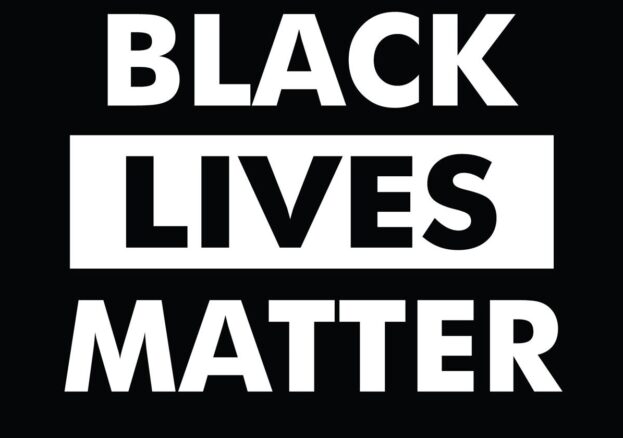Racism continues to be a prevalent issue today
Seven and a half years ago, in July of 2013, #BlackLivesMatter started trending after George Zimmerman shot African-American teen Trayvon Martin just over a year prior. The movement recently gained a lot of traction after the killing of George Floyd by Minneapolis police officer Derek Chauvin. A lot of people saw the Black Lives Matter movement as a trend after this incident and hopped onto it, but slowly stopped speaking up about it as time rolled on and the protests died down.
Most of the racism that exists today is institutional racism, or more commonly known as systemic racism. If you don’t know what that means, it’s basically a type of racism that is integrated into our society today. Even though the laws say we are equal, white people tend to treat African-Americans worse. Systemic racism is a type of racism that’s embedded into society, as people who are acting the way they do don’t believe themselves to be racist. The origins of many laws, seemingly straightforward, were motivated by racism when they were enacted. The books Stamped: From the Beginning and How to be Antiracist, both by Ibram X. Kendi talks about this a lot. From hate crimes to small forms of prejudice, it’s all racism. Almost any person of color has a story about how they were discriminated against because of their ethnicity.
A lot of media today is white-washed, as a lot of movie characters, show characters, or even book characters are white. It’s been getting better recently, as more people of color have been integrated into these forms of media, even though a lot of their personalities are generalized. This is the same for LGBTQ+ characters.
Take a second to think about your favorite movie. The main character is probably a white, cisgendered, straight man. If not, a white woman who’s stereotyped into how men generalize women. Think harder; most main characters aren’t POC (person/people of color), no matter their gender. If there’s a group of main characters and there happens to be a POC, they’re either the first to die or not important to the plot.
To help society overcome systemic racism, more diversity should be integrated into the media today. The general population is heavily influenced by the media, and it would be beneficial for it to be more representative of more Americans.
Instagram @racisminndschools has many stories about racism in North Dakota schools. Although a lot of them may seem rather small, they still greatly impact the victims and the people around them. The “incidents” (for lack of better word) are still acts of racism and inequality.
Most of the stories on @racisminndschools revolve around name calling, mocking the kids’ ethnicity, and acts of white supremacy. Not only are students discriminating against other students, but teachers also show acts of racism. A post on Dec. 15, 2020, was a statement from an African-American: “I’ve seen white students all around the school wear baseball caps or beanies to school, and not a single staff member said anything to them. But when I wore a beanie or even a bandana, I was told to immediately take it off, or I’d be sent to the office.” A lot of the stories on this Instagram page are reports of white people saying the n-word, but they get as bad as people ripping off muslims’ hijabs and continually mocking BLM.
A thing that I find rather funny and ironic is when white people tell immigrants or hispanic people to “go back to their country.” Yes, these people did come from another country, but so did the speaker’s ancestors. They came from England, Norway, Germany, France, etc, but they have the audacity to tell someone of hispanic ethnicity to “go back to their country.”
Even though racism, whether blatant or systemic, has been going on for hundreds of years, it’s still around today in many different ways. We’re working toward a society where everyone, regardless of their race, skin color, sexual orientation, or gender identity, can live equally and fear-free. You can help by speaking out, as your silence is taken as ignoring the issue. You can educate yourself about the issues by paying attention to the local news, national news, and doing research. Another way you could educate yourself is by learning about the civil war and what african-americans had to go through. A good book to read on this would be Assata by Assata Shakur. It’s an autobiography about the justice system and activism of black lives in the 60s and 70s. By educating yourself about the past and what’s happening in the world around you, you can take a stand for Black Lives Matter.
Your donation will support the student journalists of Fargo North High School. Your contribution will allow us to resume physical printing of our newspaper for students at Fargo North!
I'm the editor-in-chief for The Scroll this year. Journalism is one of my few passions and what I'll be doing after high school at MSUM. I'm also involved...



